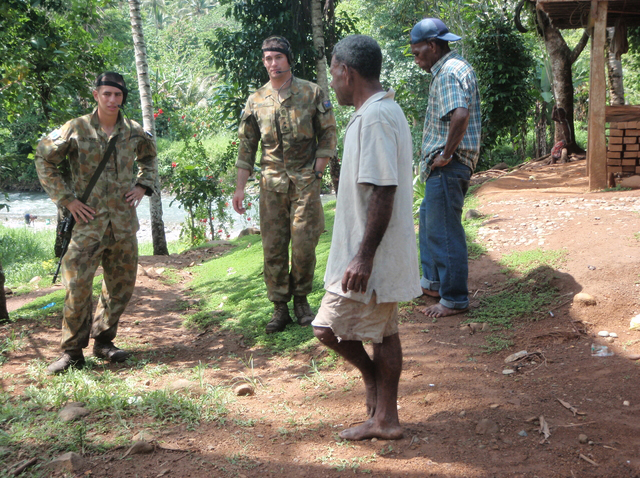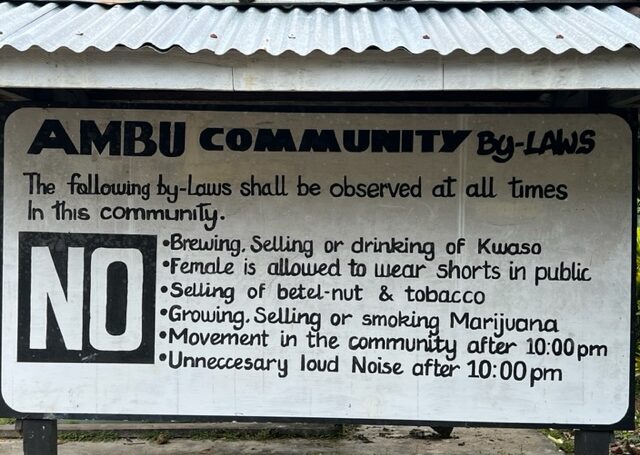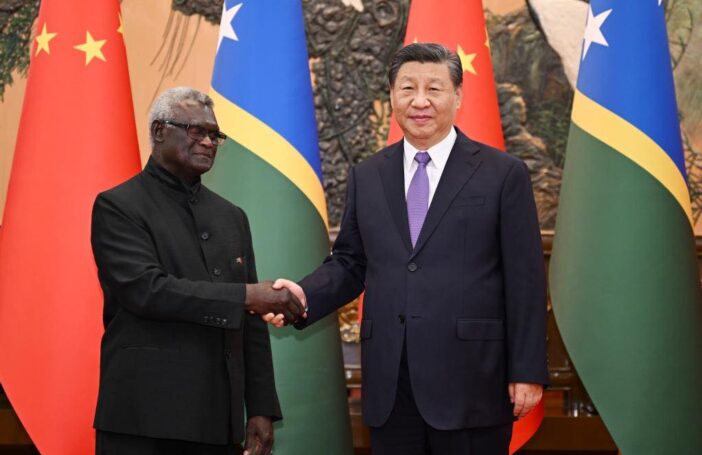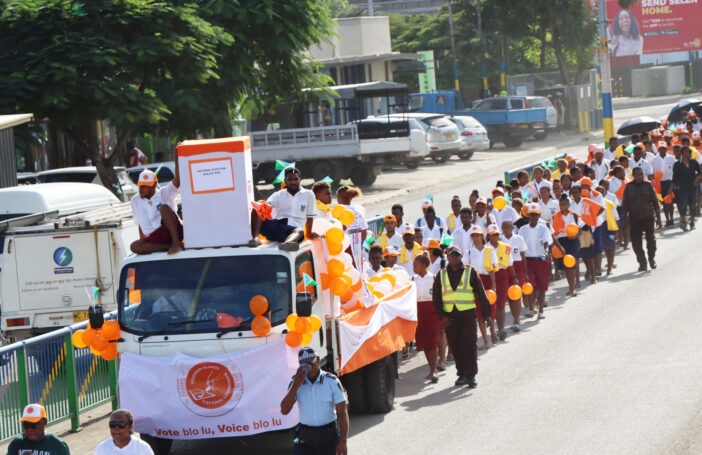A significant milestone in the history of Solomon Islands and the South Pacific was marked this week, on 24 July 2023. It was the 20th anniversary of the start of the Regional Assistance Mission to Solomon Islands (RAMSI), a mission that aimed to restore peace, stability and normalcy in a country torn apart by devastating ethnic tensions. As we commemorate this milestone, it is crucial to reflect on the successes, challenges and ongoing struggles that characterise the post-RAMSI era in Solomon Islands.
RAMSI was established in 2003 in response to the ethnic violence that gripped Solomon Islands, disrupting social order and impeding economic growth. The mission, a coalition of Pacific Island states with Australia and New Zealand at the helm, played a significant role in restoring stability and rebuilding damaged infrastructure. RAMSI assisted in reconstituting the Royal Solomon Islands Police Force, disarming rival ethnic groups, and restoring a semblance of law and order.
However, as we remember the achievements of RAMSI, we must also acknowledge its limitations and the subsequent challenges faced by Solomon Islands. Despite the relative peace that has been achieved, issues related to governance, social services and economic prospects remain significant challenges. RAMSI’s efforts were primarily focused on immediate peacekeeping and stabilising tasks, and less on the deep-rooted governance issues that continue to undermine the country’s development.
In the wake of RAMSI’s departure in 2017, the country has grappled with a range of persistent challenges, primarily poor health services, a lack of adequate infrastructure, and limited economic prospects. Despite the health and development initiatives introduced during the RAMSI era, the Solomon Islands health sector struggles with inadequate funding, understaffing, and a lack of essential health services, especially in remote areas. The COVID-19 pandemic has only magnified these weaknesses, further underscoring the urgent need for reform and investment.
Infrastructural development, too, remains a significant issue. Limited road connectivity, unreliable power supply, and inadequate water and sanitation services are common, particularly in rural regions, hampering economic activities and undermining living conditions.
In terms of economic prospects, while RAMSI brought some stability, Solomon Islands remains largely dependent on traditional sources of income like logging, which is environmentally unsustainable. Diversifying the economy and attracting investment are still major challenges, given the country’s remote location, limited infrastructure, and underdeveloped business environment.
These challenges are further compounded by the geopolitical tensions between China and the United States, with Solomon Islands caught in the crossfire. As these superpowers vie for influence in the Pacific, Solomon Islands – like many other small island nations – faces a delicate balancing act: leaders are forced to negotiate a path that, on one hand, could secure much-needed aid and investment and, on the other, may lead to external influence and the erosion of national sovereignty.
Looking forward, it is clear that Solomon Islands faces a challenging road. Addressing these issues requires a holistic, long-term strategy that prioritises good governance, invests in social services and infrastructure, and creates an environment conducive to sustainable economic growth.
Moreover, in the midst of these geopolitical struggles, it is crucial that the interests and wellbeing of Solomon Islanders are not sidelined. The international community must ensure that its engagement respects the sovereignty of Solomon Islands and contributes to a resilient, inclusive and prosperous future for the nation.
The 20th anniversary of RAMSI is a reminder of the crucial role that regional cooperation and international assistance can play in resolving crises. However, it also underscores that the path to sustainable peace and development is complex, demanding a comprehensive, integrated approach that goes beyond immediate crisis resolution. As we remember RAMSI, let’s also renew our commitment to supporting Solomon Islands in meeting its present challenges and securing a prosperous future for its people.





I really support the RAMSI with their hard work to bring back peace in nation Solomon Islands,but the problem in Solomon Islands is all about our politicians they need to leading people’s of this nation in a way that people’s doing their own things and stopping the corruptions politics, there nation of Solomon Islands will have a ever lasting peace indeed,and the leaders of this nation need to understand to the increase of human population in this nations Solomon Islands, to me I really supporting RAMSI in Solomon Islands. Thank you